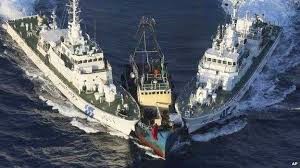In Part 1 of this case report, the outcome of a three ship collision – a trillision – causing the total loss of a cargo soybean meal was that the cargo underwriter, the People’s Insurance Company of China (PICC), remained liable to pay even though the particular terms in the bill of lading exempted the shipowner from liability if the loss was covered by a cargo insurance policy. The Maritime Court found that other contract terms made it clear the shipowner should be held liable.
Part 2.
PICC were not about to give up in avoiding the claim for the loss of the soybean meal.
Its second defence came about due to a more common issue that arises in many cases in China – the insured under the cargo insurance policy and the shipper under the bill of lading were different legal entities. In this case, the shipper was the wholly owned subsidiary of the insured.
PICC’s argument was simple, the insured had no insurable interest in the cargo.
The Wuhan Maritime Court again found in favour of the insured on the basis that PICC had treated the insured as the cargo owners. But perhaps more importantly, the subsidiary named as the shipper had been appointed by the insured to make the contract of carriage on behalf of the insured, and was not entrusted to perform the contract in its own right.
Using related but different companies to transact the overall business of a group is quite common in China and is often done for no more reason than commercial convenience.
However, it can lead to complications since the default position for Chinese courts is to respect the principle of separate legal entities.
The impression given in the reasoning of the Wuhan Maritime Court decision is that the court was looking for a reason to hold PICC to the insurance policy.
It is not clear from the facts, but if the cargo was being on-sold at the time of the carriage, that raises the point as to who was the actual seller under the sales contract.
Sometimes a decision which gives justice to a party at one stage of the commercial chain can create complications down the line.
It should also be remembered that the trillision created tortious rights and liabilities between the three shipowners and the various cargo owners.
Did the decision by PICC to fight this case prejudice their subrogated rights by uncovering a discrepancy in the title to sue of their insured?
From the insured’s point of view, the moral must be to exercise care in seeking to extend cover to the cargo of subsidiaries.
Peter Murray & Jiang Lin, Hisun & Co, Shanghai
(A full English translation of this decision can be found as Case 211 in www.chinesemaritimecases.com. Tens of thousands of cases are decided by the specialist maritime courts of the People’s Republic of China every year, which offers a huge bank of knowledge about Chinese maritime law and practice. Often the circumstances of the case are novel and never dealt with in other courts around the world. This website makes freely available to a wider audience a selection of the most significant of Chinese maritime cases, translated into English. It is a joint venture of Tulane Maritime Law Center (TMLC), at Tulane University Law School, New Orleans, USA, and Shanghai International Shipping Institute (SISI) and Shanghai Maritime University (SMU) in Shanghai, PRC.)



